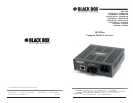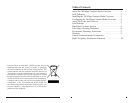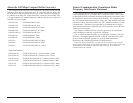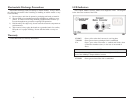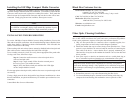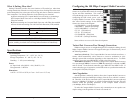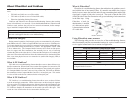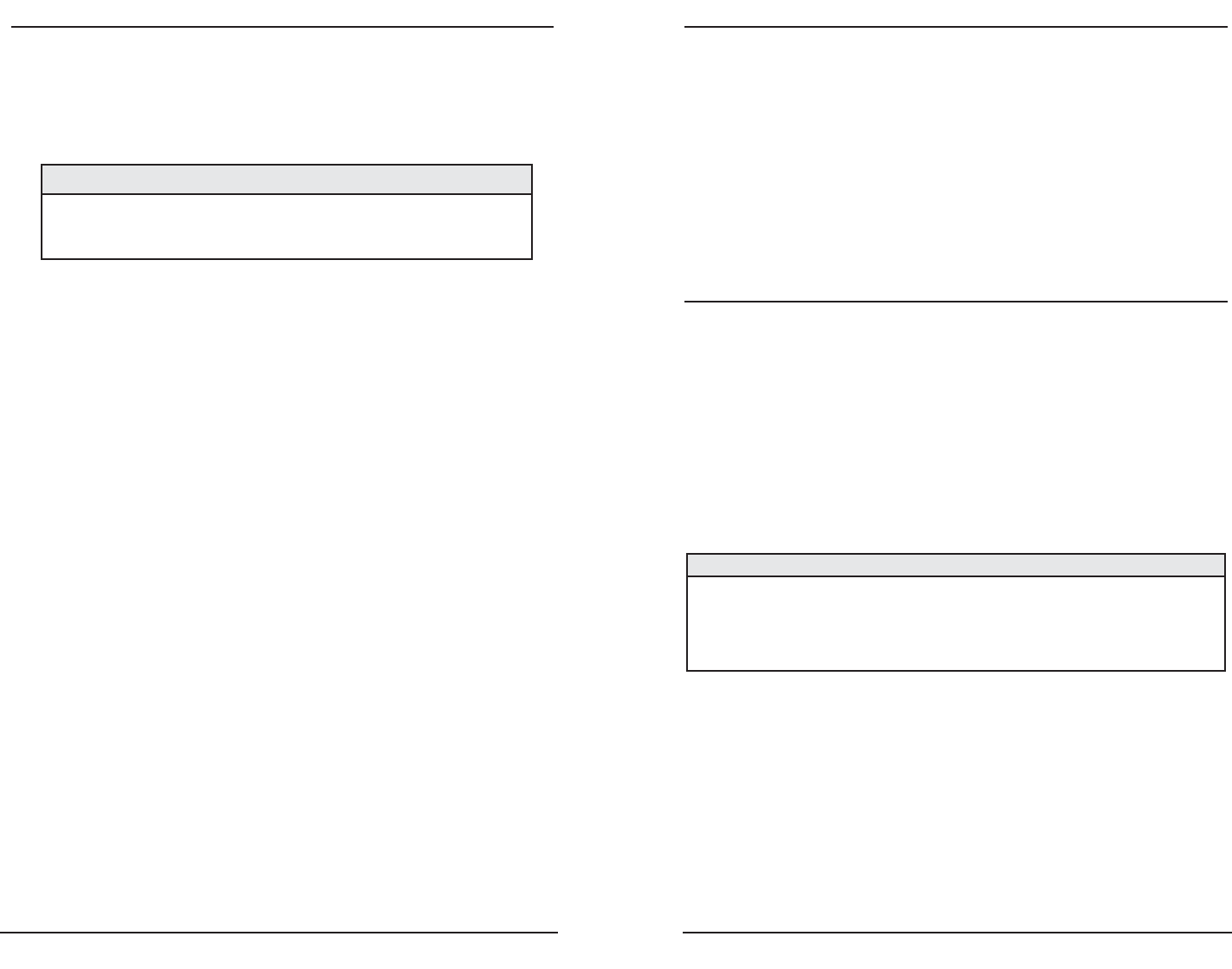
3
8
Installing the 100 Mbps Compact Media Converter
While the 100 Mbps Compact Media Converter comes ready to install, all con-
figuration changes should be made after installation. To install the Compact Media
Converter, make sure the unit is placed on a suitably flat surface. Then, attach the
cables between the Compact Media Converter and each device that will be inter-
connected. Finally, plug the unit into a reliable, filtered power source.
INSTALLATION TROUBLESHOOTING
To test the 100 Mbps Compact Media Converter during installation, first test the
fiber and twisted pair connections with all troubleshooting features disabled, then
enable these features, if desired, just before final installation. This will reduce the
features’ interference with testing.
When working with units whose features cannot be disabled, both twisted pair and
fiber cables must be connected before the link LEDs will light.
To test a media converter by itself, first verify that an appropriate fiber patch cable
is being used. Then, follow these steps:
Step 1: Connect the media converter to the twisted pair device
with a twisted pair cable.
Step 2: Loop a single strand of fiber from the transmit port to
the receive port of your media converter.
Step 3: Verify that both twisted pair and fiber link LEDs light
on the Compact Media Converter.
Use the appropriate twisted pair cable, and have the crossover/pass-through switch
set correctly.
If using a high powered device designed for long distance installations in a short
distance installation, an optical attenuator may be needed to prevent data loss on a
connection.
Contact Black Box for more information.
Black Box Customer Service
Order toll-free in the U.S.: Call 877-877-BBOX
(outside U.S. call 724-746-5500)
FREE technical support, 24 hours a day, 7 days a week
Call: 724-746-5500 or Fax: 724-746-0746
Mail order: Black Box Corporation
1000 Park Drive, Lawrence, PA 15055-1018
Web site: www.blackbox.com
E-mail: info@blackbox.com
Fiber Optic Cleaning Guidelines
Fiber optic equipment is extremely susceptible to contamination by particles of
dirt or dust which can obstruct the optics and cause performance degradation.
Good system performance requires clean optics and connector ferrules.
1) Only use fiber patch cords (or connectors) from a reputable supplier; low-
quality components can cause many hard-to-diagnose problems.
2) Black Box installs dust caps to ensure factory-clean optical devices. These
protective caps should not be removed until the moment of connecting the
fiber cable to the device. Assure that the fiber is properly terminated, pol-
ished and free of any dust or dirt and that the location is as free from dust and
dirt as possible.
3) Store spare caps in a dust-free environment such as a sealed plastic bag or
box so reinstalled caps do not introduce any contamination to the optics.
4) Reinstall the protective caps when disconnecting the fiber device.
5) To clean contaminated optics, alternate between blasting with clean, dry,
compressed air and flushing with methanol to remove particles of dirt.
NOTE
Since single-strand fiber products use optics that transmit and receive on
two different wavelengths, deploy single-strand fiber products in pairs,
or connect two compatible Black Box single-strand fiber products.
WARNING
Integrated circuits and fiber optic components are extremely susceptible to
electrostatic discharge damage. Only qualified service technicians using tools
and techniques comforming to accepted industry practices should handle these
components.



